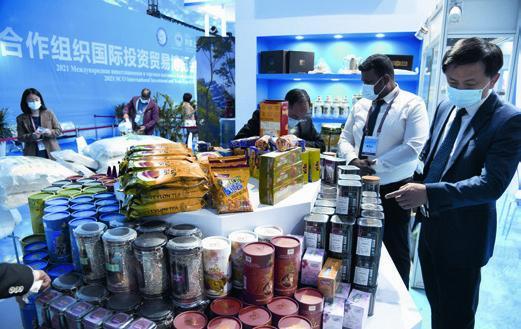Entering a New Stage
By Anton Bugayenko

This September celebrates the 20th anniversary of the Shanghai Cooperation Organization (SCO). Over the years, the bloc has demonstrated itself to be a convenient platform for resolving security issues in the Greater Central Asia region.
After its founding in 1996, the Shanghai Five, the predecessor of the SCO that grouped China, Russia, Kazakhstan, Kyrgyzstan, Tajikistan, was able to effectively settle the issue of demarcating the borders of the newly independent former Soviet states with China. This is one of the most important events in the formation of independence and recognition of the Central Asian states.
The main result of the first stage in SCO development, following its establishment by the Shanghai Five and Uzbekistan in 2001, can be considered the introduction of more interaction between the countries of Central Asia and China with the participation of Russia. For centuries, the region has been locked in a geopolitical corner on the outskirts of the Russian Empire and the Soviet Union. And perhaps the region would have remained as such, had it not been for the intensification of political interaction with China within the SCO. Without it, contacts along the eastern border of the region would be chaotic and could face a fate similar to that of the southern borders—without strong political channels of interaction, the borders in the south were eventually sealed in.
The SCO has created a platform for interaction with China, which now stretches beyond the organization, turning Eurasia into a developing region looking both east and west.
A new trajectory
After India and Pakistan joined the SCO in 2017, the organizations contacts with South Asia intensified dramatically. The development process toward the south could even further accelerate following the accession of Iran in 2021, paired with its focus on solving the Afghan problem by reintegrating Afghanistan into its surrounding region.
For the SCO, one of the most important tasks is preventing the disintegration of Afghanistan and the repetition of the Syrian and Iraqi paths. External players using the existing differences within Syria and Iraq eventually led to the destabilization of the entire Middle East as well as the growth of religious extremism.
The SCO countries should work together in landing on a common position regarding the future authorities of Afghanistan and provide mutual assistance in dealing with the new Afghan Government. The countries of Central Asia can use the support of Russia and China to deal with the Taliban regime. In turn, the situation in the Afghan borderlands of Central Asia will influence stability in China and Russia.

